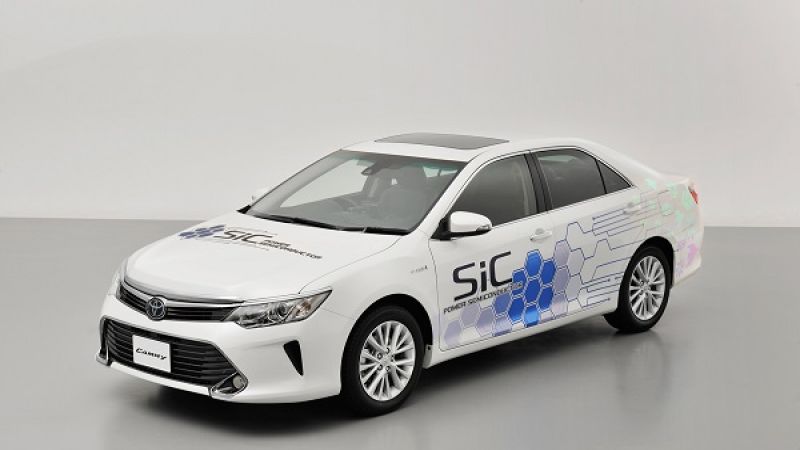Six months ago Torque News reported on the promising new power control unit (PCU) technology Toyota has developed. The technology centers on the power semiconductor chips used in the PCU. The basis for the technology is silicon carbide (SiC). Toyota’s new technology could improve the efficiency of its hybrid and fuel cell vehicles by five to ten percent.
Real-World Testing Begins – Camry and Fuel Cell Bus
Toyota has taken the next step in the development of this new technology by installing a PCU with the SiC technology in a Camry Hybrid and also a Fuel Cell bus. Testing commences in mid-February and will continue for one year. Toyota’s goal is to gather data form the test vehicles to determine the real-world benefit of this new technology.
Toyota Production Vehicle Plan for SiC
Toyota hopes to the use the technology as soon as possible. As we have covered in other stories, Toyota plans to improve the fuel efficiency of the next generation Prius by at least 10%. The SiC technology is not intended to be the only method used to achieve this very aggressive goal. Included in the technologies that will contribute are new heat transfer technologies and super capacitors. The super capacitors are already used on Toyota race vehicles. The intent would be to capture more regenerative braking energy than is now being captured. This could supplant or augment the present battery technology used in hybrids and fuel cell electric vehicles.
Related Stories:
The 2016 Toyota Prius will top 60 MPG
Toyota reveals breakthrough that will increase future Prius MPG by 10%
Set as google preferred source












Comments
Step forward? Everything
Permalink
Step forward? Everything Toyota makes hybrid wise is based on dated technology. This looks like a tweak to the synergy drive that is way old.